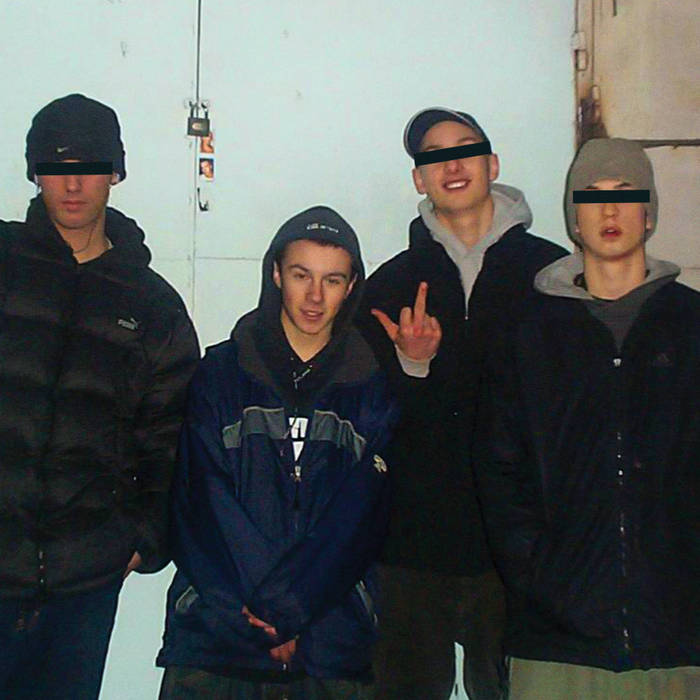Producer Przemysław Jankowiak has been busy in the Polish underground for a good long while under many guises. Most recently this year in Strata (with Hades and Kosi), previously in rap duo Syny, and as Etamski among other projects. 2K88 is an update of his most used, if puzzling, alias 1988 and Shame a further exploration of the territory of his 2017 album, Gruda. Mixing a love of British club styles with samples of the 90s and 00s Polish rap he grew up on to create something cinematic and introspective.
Shame is not a rap record nor is it an update or replay of old genre moves but an attempt to channel something of their mood or essence into newer shapes. 2K88 process and pressures his samples, slicing them thin and pushing them through reverb, sifting for the sticky residue of youth and paranoia. The cover photo shows a teenage Jankowiak and friends. He smiles while the others have their eyes barred out to hide their shame. They look like the Kurupt FM crew.
How the theme of shame plays out on a record built from the enthusiasms of his younger self isn’t clear, but it might explain the generally downbeat mood. If we lack the specifically Polish reference points to pick up on more nuanced resonances it is nonetheless hard not to see this emotional meditation on sounds of the recent past as post Burial music. Next spring is the twentieth anniversary of South London Boroughs. Before you know it we’ll all be up to our wistful nipples in retrospective re-evaluations of his debut album. A potentially endless misty-eyed loop. The hardcore ouroboros.
There are sonic as well as conceptual similarities, torn vocal samples float in grainy atmospheres over soft synths. Sampling from old tracks built from samples, smoothing out the kinetic raw edges, the sources further degrading like copied radio tapes. It’s music made out of club music but not exactly club music. There are plenty of beats but they often skitter at cross purposes or slow build to a steady nod. They never fully lock in with a bass drop and kick hard. It’s almost ambient in its way, a sombre hall of mirrors. Shame is not on the dancefloor; it is the washed-out day after. An isolated space for recollection, ice white and pale blue, drained of colours and edges.


